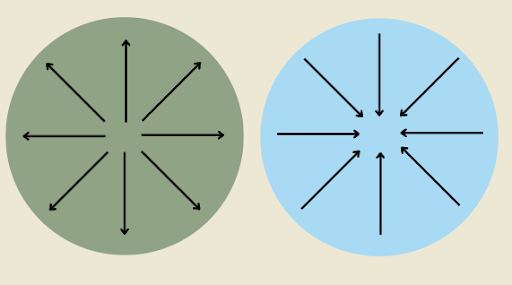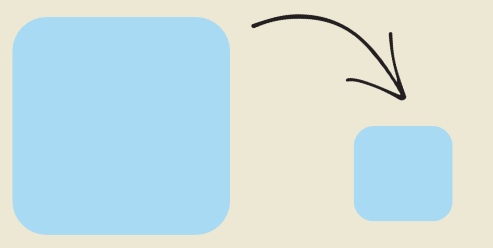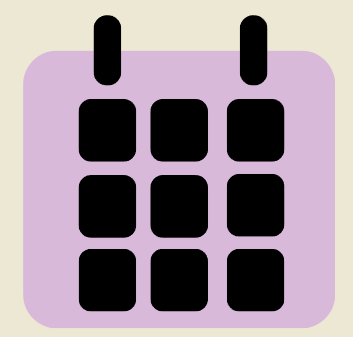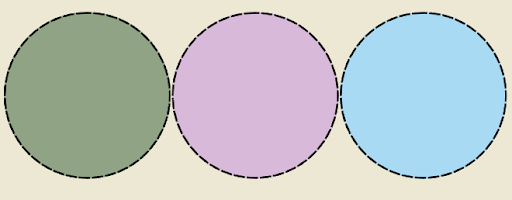7 ways to get better at self-care (with examples) - 25 February 2025
Hi, thanks for stopping by 🙂
You probably know that self-care and coping techniques are really important to make life that bit easier, by managing things day to day. But, it’s one thing to want to do more self-care, it’s another to know what you want to do, it’s yet another to know how.
Here, I’ll go through some key points which could make it easier and more manageable for you (which I use myself!). (Note: Whilst self-care and coping are technically different things, I use them to mean the same thing here).
Type 1 and Type 2 coping
The difference between types 1 and 2 can be really important to consider, as you probably only have one of these in your mind right now.
Type 1 is all the stuff that’s ‘good for you’, but you might not always want to do. You know it will help you, especially over the long term, but can feel like a lot of effort at first. This might be exercise, eating well, getting outdoors, prioritising your sleep, doing something creative or reducing your screen time.
Type 2 focuses on the things that might feel like a ‘treat’ or ‘indulgent’, that are often nicer to do and give you more noticeable help. You might be more likely or willing to do these, especially when going through a rough time. Stuff like yummy food, a drink, old TV or films, distracting yourself with your phone or having a bath.
The aim would be to have a balance of both type 1 and 2, as they clearly each have their own benefits. There are a few things which could satisfy both, but most things tend to be one or the other.

Proactive and reactive coping
These focus on how you use self-care, or how often.
Proactive coping is about the regular, consistent or planned things you do to help, like you might go to a weekly exercise class or social group. But, it doesn’t have to be formally organised, you might have a bath every Sunday night, or you sit down with a book at some point in the week. This helps you to keep on top of things, so youtube negative stuff is way less intense.
Reactive coping is about responding to things when they come up - not just your emotions, but also your thoughts, behaviours and physical feelings. This might be what’s already in your mind with self-care, like after a long day you might order a takeaway, go out for a drink, get into bed early or call a friend. For this, you need to be able to recognise these and respond to them.
Just like with type 1 and 2, the ideal could be a balance of both. If you just have the planned stuff, it might be hard to manage when something crops up. But with only responsive things, it might be that much harder because you’re already not in a great place. But with both, you can keep yourself ticking over to make everyday feel better, but its also easier to deal with big things that catch you off guard.

Adding a positive or removing a negative
These are two different ways to think about what kind of self-care you can do. Plus, self-care can be related to what you’re coping with or completely random.
Imagine you’re having a really stressful and busy time at work at the moment, and you know it will be for at least another few weeks. Every evening you’re exhausted, dreading work tomorrow and just want the next few weeks to be done.
If you want something work-related you could add the positive of a 10 min walk on your lunch break. Or, removing a negative could be to block email notifications on your phone outside of work hours.
For unrelated examples, you can add in a dinner out or takeaway every Friday as something to look forward to. Or, you could postpone those DIY jobs around the house that don’t need to be done immediately.

Make it smaller
There’ll be plenty of things you feel like you could or should do for your self-care. But, there’s a reason why you aren’t already doing them - they take too much time, money, effort, energy or commitment.
Whenever we plan something, we might naturally imagine loads and loads we could do - especially when we’re first motivated. But, the energy and motivation never lasts, so it’s worth having coping techniques for when you really can’t be arsed.
So if you’re thinking about going for 3 runs a week - maybe make it just 1 or 2 for now. Or if you want to read every day - make it for 5 minutes instead of 60. Or if you want to get back in touch with all your old school friends - maybe pick just 1 for now. You can always add in more later if you want.

Find the grey area/use a range
If having a set goal gives you too much pressure - I use a range. I have an ideal minimum and maximum, and anything within that range means I’ve ticked that box. But, there are still exceptions to these as well, and you have to be okay with anywhere in that range.
For example, I like to have 2 gym sessions a week, with 5-8 specific movements for each. But if I occasionally do just one workout with only 2 or 3 movements, that’s still better than nothing (when I used to expect myself to do a full workout, I just wouldn’t go at all if I wasn’t feeling it). And, if I’m ill or it’s insanely busy at Christmas, I don’t expect to go to the gym at all, because I know I’ll be back to my usual routine within a week or two.
Our brains naturally think of things as black and white because it’s quicker when you’re on autopilot - but it’s easier to stick to things when you go for the grey area.

Block out the time
Imagine you had a shift or a meeting at work - you would never miss it, right? Treat your self-care in the same way. Putting my exercise at set times in my calendar has really helped me - I do love routine. That way, I can find time to fit both in, or occasionally reschedule my exercise for a different time if needs be, rather than it not happening at all.
Plus, I’ll never forget to go for a run or a walk because I see it whenever I look at my schedule for the day, and I can set reminders. And, you don’t even have to schedule a specific thing for that time. Sometimes it’s just about having that time carved out in the first place.
Some friends of mine each have a ‘night off’ every week. When it’s A’s night off, B puts the kids to bed by themself, and A can do whatever they want for the whole evening. Then one other night a week, A puts the kids to bed so B can have some alone time. Sometimes they plan something in, like meeting a friend or seeing a movie. Other times they leave it open and just see what they want to do on the night.

Before, during and after
Another time-related element to consider here. If you know you’ve got a rough day or week coming up, you could plan things so beforehand your self-care distracts you or conserves your energy. During, you might add in little breaks, even just for 5 minutes, whatever you can get away with. After you’ve got through a tough time, you might get away from it all or do something to let off loads of steam.
If something comes up unexpectedly, of course you can’t do anything before by that point, but during and after are still options. But, as with proactive and reactive coping, if you’re only ever caring for yourself after, that’s gonna make things so much tougher on yourself. Again, balance is key.

Takeaways
Hopefully this has given you some pointers for your self-care, and showed that it can be a lot more flexible than you might think. I like to think of coping techniques as having a deck of cards, so I have a variety of things that can cover a lot of different situations. Some that are inside or outside, alone or with others, high or low energy, planned or ad hoc, etc. But I always try to make sure it’s realistic and actually suits me.
If you plan something in and can only manage part of it - that’s amazing. You’ve still done so much more than you would’ve otherwise. This won’t change overnight (there’s that black and white thinking again!), unfortunately you need to practice over time. Just try to make things 1% better than you were last month or even last year, and it’ll build up over time.
And, it won’t always look the same either. Sometimes your best will be an hour every day, sometimes it’ll be just an hour a week (or even less). As always, something is better than nothing.
If you’re looking for an easy, no bullshit way to help get to sleep, start here
If you want more, there’s plenty of no fluff self-care ideas on my Instagram
Or, if you’d like to work on your self-care in sessions with me, answer these questions to see if you can join my therapy waitlist.
See you soon, Becca 🚫💩🤘